Downloaded from www.mymenopausecentre.com
Direct URL: https://www.mymenopausecentre.com/symptoms/loss-of-confidence-and-self-esteem/
Menopause and loss of confidence and self-esteem
There are lots of triggers for loss of self-esteem. Some are physical (like hot flushes) and others are mental (like stress). It's a very common symptom so remember that you aren't alone.
Explore
Book an appointment
The highly experienced doctors and nurses in our menopause clinic are here to help you. Appointments from £190.
Book An AppointmentIf you would like to learn more about the impact of your symptom(s) complete our free online menopause questionnaire here.
What is menopause-related loss of confidence and self-esteem?
We talk to many women who feel their self-confidence has faded away, and this can have a real impact on their overall quality of life.
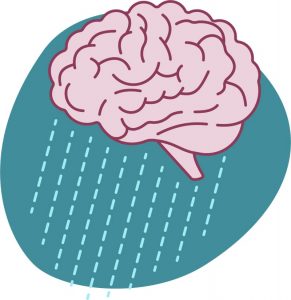 Loss of confidence is common during the menopause transition and is connected with several other symptoms of the menopause. Many of these symptoms can contribute to the loss of confidence and self-esteem in ways you may not expect:
Loss of confidence is common during the menopause transition and is connected with several other symptoms of the menopause. Many of these symptoms can contribute to the loss of confidence and self-esteem in ways you may not expect:
- Anxiety, low mood and depression, brain fog and memory issues can all make you question your performance
- Changes to your physical appearance and the effects of ageing can be important for many women
- Hot flushes and sweats– not being able to predict when you might next be drenched in sweat – can also have an impact on how you’re feeling
- You may stop taking part in activities that were important to your sense of self. For example, if you get joint pains or bladder issues, these may stop you from exercising
- Anxiety or fatigue can stop you from socialising or seeing friends, while night sweats can keep you awake and leave you tired during the day
All of these things can make you withdraw from life and feel more isolated.
What causes loss of confidence and self-esteem?
As with most symptoms of the menopause, loss of confidence may result from the reduction in oestrogen and possibly testosterone.
Life events, family changes, relationships and work issues can also have an impact, along with the physical changes of ageing. These factors may be either directly or indirectly related to the menopause.
How many women typically experience loss of confidence and self-esteem?
Loss of confidence and self-esteem in the menopause is very common.
It’s difficult to put an exact figure on it, but a survey by the British Menopause Society has revealed that over 20% of the working women surveyed reported that the menopause had affected their confidence at work[1].
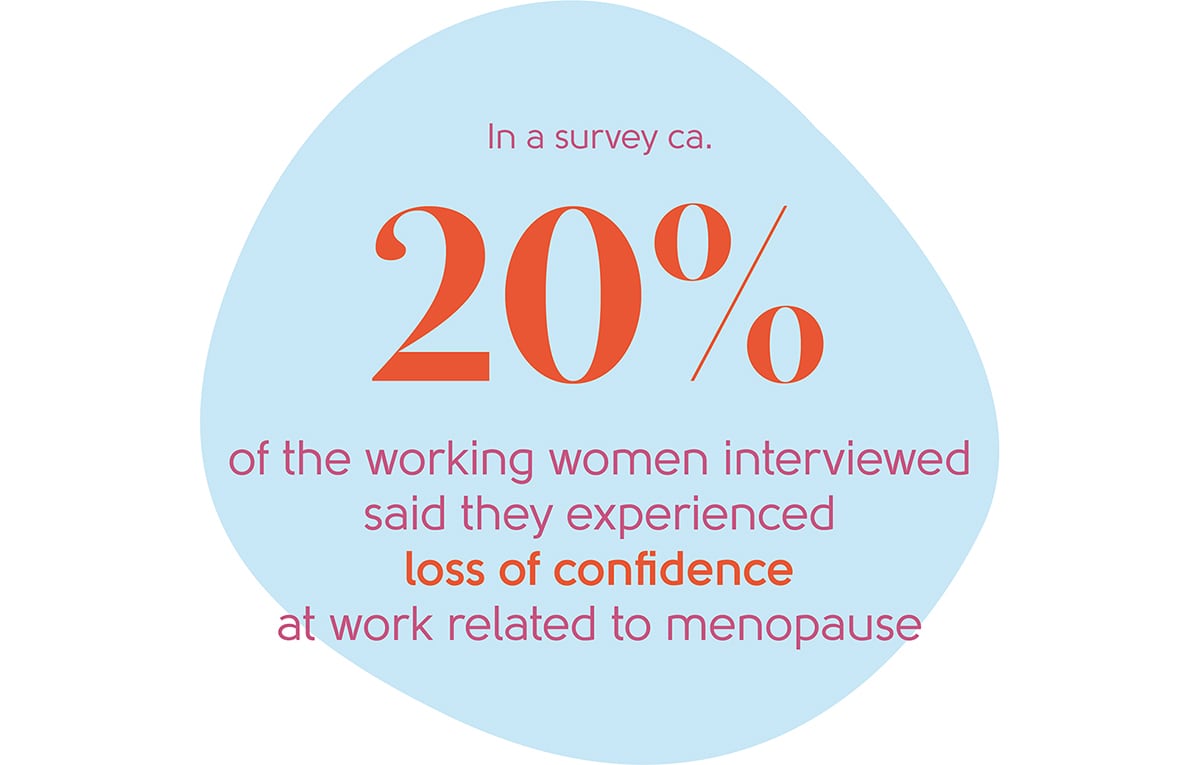
Is loss of confidence and self-esteem linked to any particular stage of the menopause?
Loss of confidence and self-esteem can happen at any stage of the menopause.
How can loss of confidence and self-esteem be treated?
There are some questions you can ask yourself to help you better understand what might be behind your loss of confidence or self-esteem:
- Is it just loss of confidence or do you have other symptoms as well?
- What is your mood like?
- Are you sleeping?
- Is there stress in your life?
- How are the physical symptoms of the menopause for you, such as hot flushes, bladder symptoms and vaginal dryness? How do they make you feel?
Please don’t hesitate to talk to a doctor about how you’re feeling, as there are so many different options available that can help you feel better. Many women find that getting on top of other symptoms helps them to get their confidence back.
Hormone replacement therapy (HRT)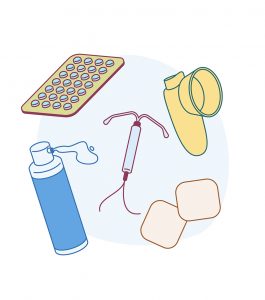
This can be an excellent way of getting on top of your menopause symptoms. You may feel anxious about taking HRT because of everything you’ve read in the media, which tends to highlight the risks and give less coverage to the benefits.
However, many menopausal women find that dealing with the symptoms can boost their day-to-day confidence, self-esteem and motivation while reducing mood swings. You can find out more about HRT here.
Cognitive Behavioural Therapy (CBT)
If you’re struggling to pinpoint why you’re feeling the way you are, talking therapies can help. Working with someone to look at the positive areas of your life, or to help rethink and reset unhelpful negative thinking, can help you start to get your confidence back. Find out more about our CBT partners Sue Makin and Claire Lloyd.
Dealing with work issues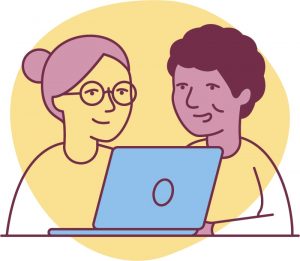
If it’s work that’s getting on top of you, there are a few things you can do that could help you get your confidence back:
- Could you speak to someone at work about how you’re feeling – a colleague, your line manager or someone in the HR department? Many companies now have policies in place for the menopause. The Faculty of Occupational Health has good guidance that you could share, as does the Chartered Institute for Personnel and Development
- Are there changes to your work environment that could make you feel more comfortable – like having water to hand, access to cooling fans or windows?
- Extra training or upskilling, coaching or counselling can be massively helpful to empower you to find the best way to thrive
Our partner, Cognomie, offers online mental fitness coaching to improve health, wellbeing and performance. Find out more here.
Sex therapy
Sex therapy is a brilliant way to help you feel more positive about your changing body and can help you find a positive way forward in how you feel about yourself and/or your relationship. You can find out more about Sue Makin, our sex therapy partner here.
Relaxation
This is really important. Find a way to de-stress and get some headspace through yoga, meditation or just going for a long walk – whatever it is that you can find to help you switch off for a while.
Exercise
Exercise can be a brilliant way of improving your body image, increasing wellbeing, reducing weight gain and boosting your self-esteem and energy.
These tips are not exhaustive and there will be ways of boosting your confidence and motivation that are more specific to you as an individual.
It’s not always easy to tackle this by yourself. Rest assured, we’re here to help – with medical advice, coaching, support in getting more active, or with therapy.
What next?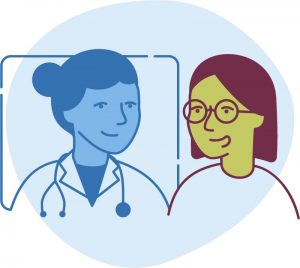
If you’re experiencing a loss of confidence and self-esteem, see your GP or book an appointment with our menopause clinic to talk about your symptoms in relation to the menopause.
If you think you may be experiencing symptoms of the menopause transition, you can learn more from our symptom checker or by taking our Menopause Questionnaire.
You can also find more information about the menopause transition at the British Menopause Society and the National Institute for Health and Care Excellence.
Authored by:
Dr Clare Spencer
Registered menopause specialist, GP and co-founder; see Dr Clare in person at The Spire Hospital, Leeds or online
Last updated:
07/04/2021
Book an appointment
The highly experienced doctors and nurses in our menopause clinic are here to help you. Appointments from £190.
Book An AppointmentLearn more
Join the pause. community
We’ve created pause. as a space for women to come together and share stories about their menopause experience, ask questions, and to find support and inspiration. We'll also share the latest news and updates on the menopause from our experts.
Want to be the first to hear our latest news? Join our pause. community today.
Share your email to receive the latest news, updates and information on new products and treatments from My Menopause Centre and our pause. community. You can unsubscribe at any time.
We're committed to protecting and respecting your privacy - see our Privacy Policy and Terms and Conditions

Book a consultation
Whether you want to discuss your symptoms, create a treatment plan that's right for you, understand some test results or have a check-up, the highly experienced doctors and nurses in our menopause clinic are here to help you.
Book nowReferences
-
Source: Currie H, Moger SJ. Menopause – Understanding the impact on women and their partners. Post Reproductive Health. 2019;25(4):183-190.
Contact My Menopause Centre
- General enquiries: hello@mymenopausecentre.com
- Book appointments online: Log into your account and go to 'My appointments'
- Book appointments by phone: 0333 444 1067
- Website: https://www.mymenopausecentre.com


















